Do you feel the onset of a cold, or have you already detected the first symptoms of SARS? This is a sure sign that it’s time to slow down a little and take care of yourself and your health. And the first advice of any therapist (as well as grandmothers and mothers): drink more warm tea.
In this article, we will remind you what ingredients can be added to the most common tea to turn it into a real health elixir. So, where to start.
Choosing tea.
In fact, the choice of tea is always a matter of taste. But each kind also has its own special useful properties.
Fermented tea is most rich in antioxidants and vitamins. This is a real “charge” for the immune system and a natural antiseptic. It helps to improve the functioning of the whole body and relieve inflammatory processes. In addition, it relieves headaches, strengthens the cardiovascular system and provides protection against cancer.
Black tea contains a high concentration of L-theanine, an amino acid that increases our stress tolerance and, in combination with caffeine, it helps us feel both alert and calm. What you need as a preventive measure! Black tea supports heart health, stabilizes blood pressure and improves bowel function.
Pu-erh is good at mobilizing the immune system. In addition, they help to get rid of “bad” cholesterol and restore digestion.
Karkade is impressively rich in vitamin C.
GABA stimulates mental abilities due to the large amount of gamma-aminobutyric acid.
Fireweed and rooibos contain a lot of vitamins and antioxidants, but they do not contain caffeine, so they can be given even to children or drunk in the evening.
Hemp tea contains phytocannabinoids, which have anti-inflammatory, bronchodilator, antipyretic and analgesic properties.
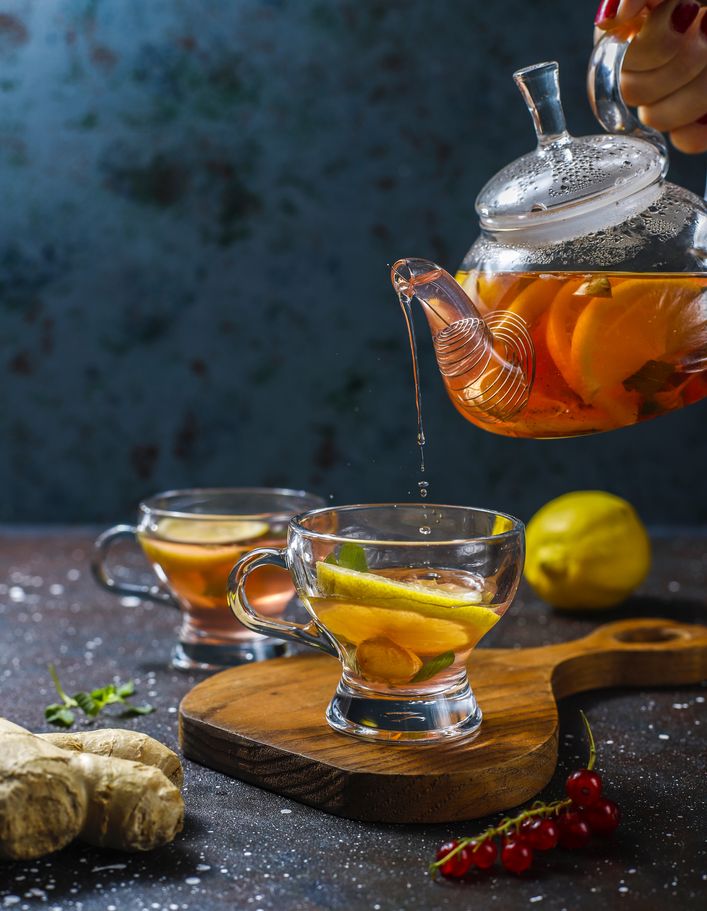
Adding berries and fruits.
Foods high in vitamin C are our best helpers in treating colds and flu. Everyone knows that this vitamin is hidden in sour berries such as currant (200 mg), sea buckthorn (200 mg) and rosehip (650 mg). That’s why grandmothers and mothers taught us to add them to our tea during sickness.
If the berries are fresh or frozen, it is best to mash them well in a mug of warm tea. If they are dried, then the best way is brewing. Just add the berries to the fermented tea, cover it with hot water and infuse for a few minutes. For those who like to drink undiluted tea, we recommend putting a smaller amount of tea leaves than usual, so that the drink does not become too bitter from the prolonged infusion. For those who like to drink undiluted tea, we recommend putting a smaller amount of tea leaves than usual, so that the drink does not become too bitter from the prolonged infusion.
Keep in mind that lingonberry and cranberries, although acidic, contain less vitamin C – only 15 mg.
Sour fruits are also a great way to strengthen the immune system and cope with the disease. The most popular participant in the tea party is, of course, lemon, but other citrus fruits will make your healing elixir tastier and healthier. All of them contain an average of 50 to 100 mg of vitamin C (depending on the variety and growing time). Try adding a little fresh orange juice to a cup of black tea for a change, or mash a couple of tangerine slices in a mug. Lovers of bold tastes will like the fresh bitterness of grapefruit or oroblanco.
By the way, keep in mind that lemon zest contains twice as much vitamin C as the pulp.
If you want to bring a touch of exoticism to everyday life, we recommend adding a piece of kiwi to your tea: it contains up to 180 mg of vitamin C.
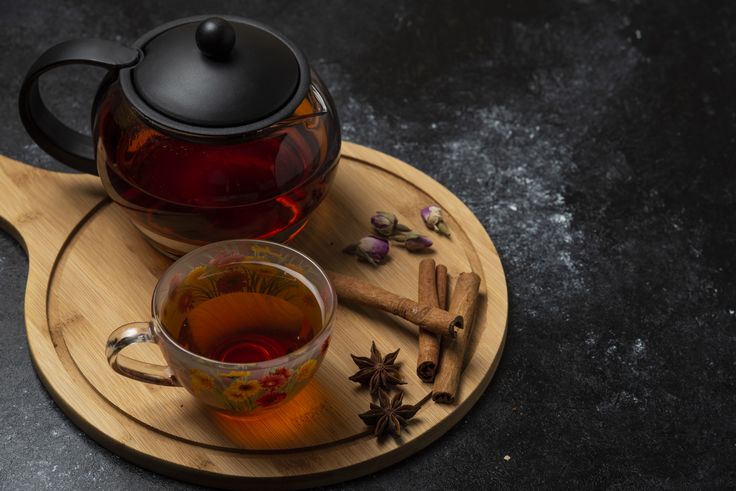
Adding spices and herbs.
Are you used to adding spices to your coffee? We assure you: in tea, they also taste great! Proof of this is the worldwide popular masala and Moroccan tea. The first is made on the basis of milk, the second – without it. But any variations are possible. Below are our hot recommendations.
Ginger is the most famous supplement for strengthening the immune system and a speedy recovery. It has a diaphoretic effect and is very active in relieving flu symptoms and lowering fever. Ginger tea also helps many people relieve a sore throat. It is best to take fresh ginger root, but ground ginger is also suitable.
Cinnamon strengthens the immune system, energizes cells that fight viruses, and helps soothe a sore throat.
Turmeric contains curcumin, which is rich in antioxidants. It promotes the recovery of the entire body, has anti-inflammatory, antiviral and antibacterial properties, and at the same time acts as an immunomodulator.
Mint gives a cool feeling and soothes the throat. The menthol contained in it helps to open the blocked nasal passages.
Thyme is also great for relieving nasal congestion. It is especially good to inhale its aromatic steam during a tea party to help dilute mucus in the nose and bronchus.
Chili peppers keep you warm thanks to their capsaicin content, which helps stimulate the body’s metabolism and detoxify it during sweating.
Cloves do a good job with bacteria and at the same time give us anti-oncological protection.
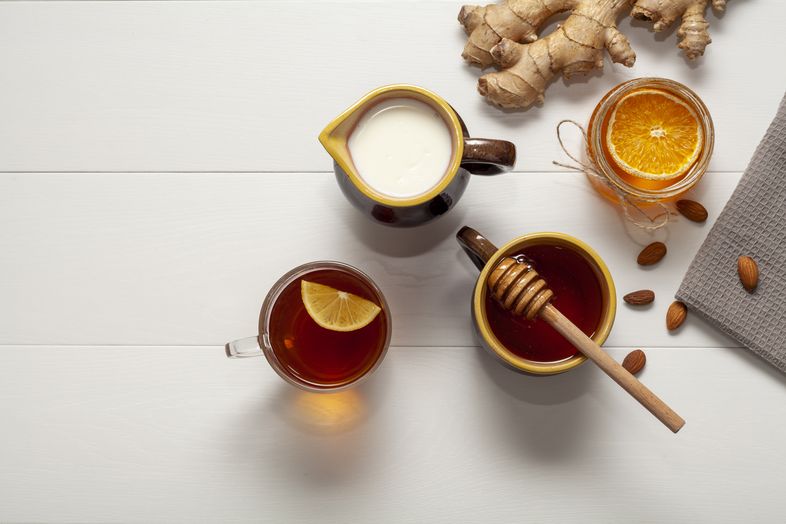
Using honey and milk.
Honey is another indispensable assistant during the cold season and sicknesses. This is known not only to grandmothers, but also to everyone who has ever had to fight SARS. It has a powerful antibacterial and partially antiviral effect, has anti-inflammatory and antioxidant effects due to flavonoids and other polyphenols.
But milk is a controversial product. Many people are used to thinking that it should definitely be consumed during an illness, especially when coughing, but there is an opposite opinion in the world. For example, in 2018, another study appeared, among many others, proving the need to limit the use of milk. This time, British scientists confirm that dairy products increase the amount of mucus in the body, slowing down the recovery process.
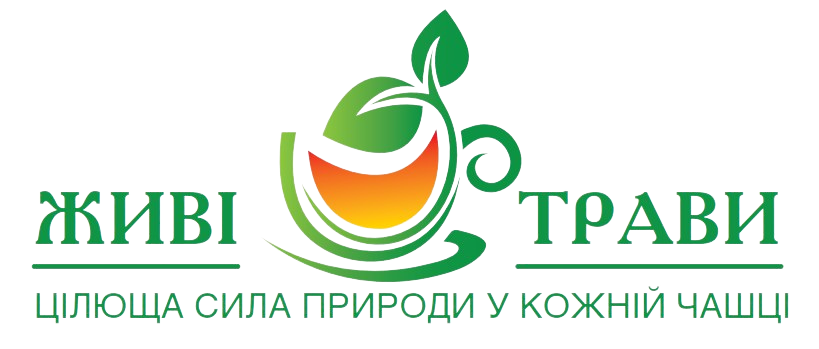





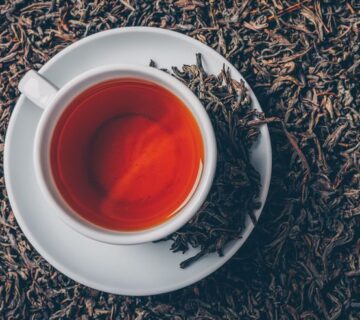
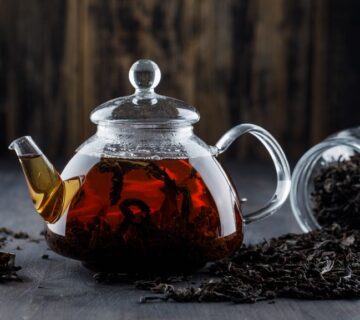
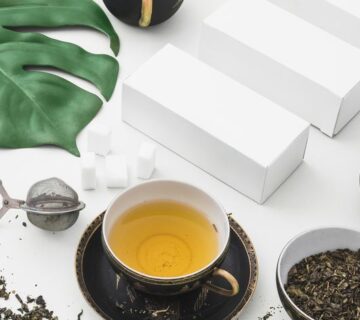

No comments